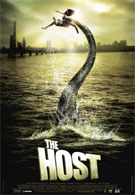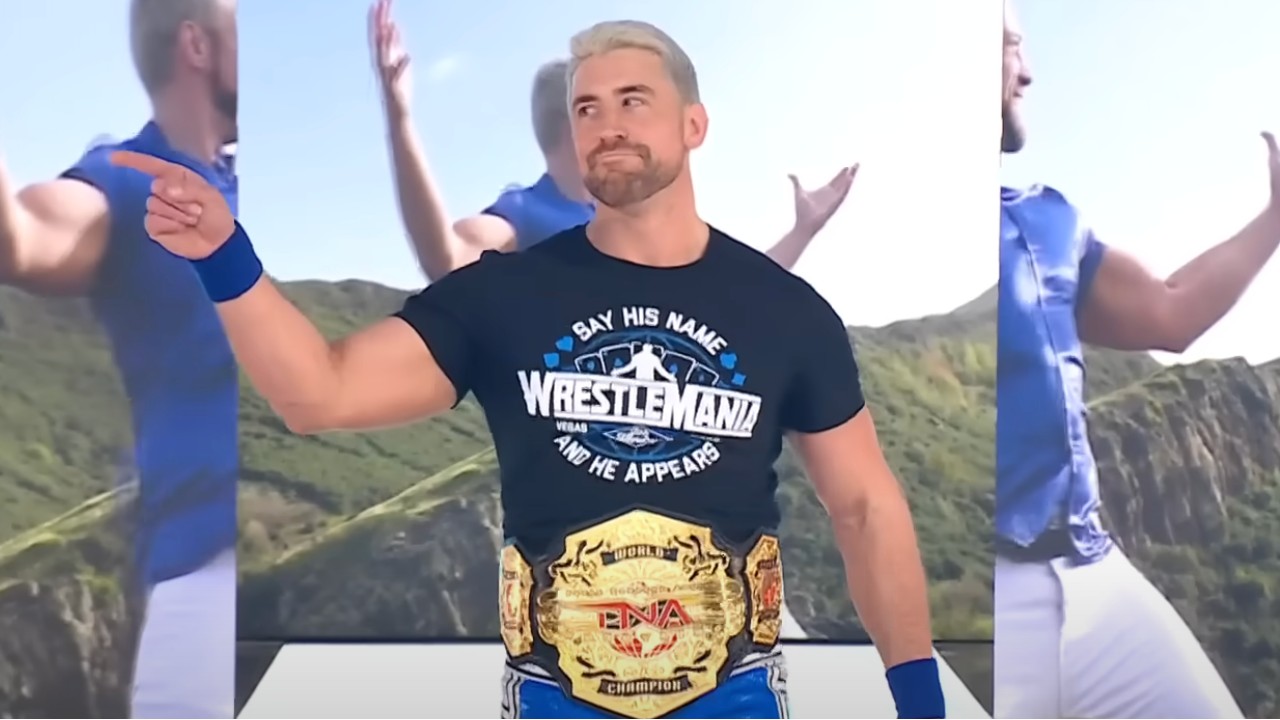Monster movies have always captured audiences’ attention. From King Kong and Godzilla to The Blob and Jaws, cinematic monsters leave us both in awe and terror, as we contemplate our effect on nature. In it’s bold continuation of the monster movie tradition, The Host is both shocking and surprising, but not because of graphic violence or exploited terror. It breaks from genre conventions so quickly, that you are left off-kilter, not knowing what to expect next. It’s a monster movie that plays like the filmmakers have never seen another monster movie, and it’s a breath of fresh air in a rather stale genre.
The power of The Host is not it its originality or style, which it has in spades, it’s that the film’s politically-conscious themes resonate through contemporary events, while still providing thrills and chills with the coolest monster you’ve likely seen in years. The monster’s premise is based on an actual event in which a U.S. Army doctor ordered a subordinate to pour dirty bottles of formaldehyde down a drain that led to the Han River in Korea. The film then takes over, the years pass and a genetically-mutated amphibious monster quickly appears to terrorize people relaxing in a park by a bank of the river and send Korea into a state of emergency.
Being that the monster movie genre has been trampled on for years and reduced to a series of clichés, you expect that the monster to be hinted at for at least a half hour before any true action starts. Except the monster’s first appearance is not over-dramatized or exploited by a crescendoing orchestra. All of the sudden a monster appears, and you are as confused, stunned and afraid as the people on screen. From the first encounter, the monster merely exists and it acts in line with its nature, without putting on a show for the audience.
While the monster, which is computer-generated but believable, is going about its business, the Korean Army quarantines the area. The monster has been discovered to be a host for a deadly new disease– a combination of an animal virus and a strain of SARS. In adding a layer of biological threat, up-and-coming director Joon-ho Boon takes on the incompetence of the Korean government to quarantine the SARS-like illness and even goes as far to criticize U.S. foreign policy, once the U.S. gets involved. Through news casts and government officials’ behavior, Joon-ho Boon weaves this commentary into the fabric of the film – using it to propel the film’s storyline rather than smother it. The disease divides the country into those who are afraid of infection and those who call the government’s bluff, while you are smack dab in the middle of the conflict and unable to choose sides.
As if thematic depth and an exciting, original monster isn’t enough, The Host also has an amazing sense of humor. We follow the actions of a family of misfits as they break into the quarantine zone in search of their daughter who was taken by the “host,” yet is believed to be alive. Their shortcomings and failures are both hilarious and devastating. Never once do you find yourself yelling at the screen because of the character’s stupidity. Instead, these are dynamic characters who make mistakes and don’t always succeed in the end.
Despite the heavy political themes and creature-driven suspense, The Host never takes itself too seriously. The film is hyper-conscious of its genre and that gives the film the liberty to have some ironic fun, but it can leave the audience feeling confused and uneasy. One moment you feel the hopelessness associated with the death of a character; the next moment, a cross-eyed government official has you in stitches as he is about to perform a lobotomy. Then you realize you’re laughing at a lobotomy and it’s all a bit disturbing. Although the film doesn’t provide any solid emotional footing, it never forgets that deep down it’s still just a monster movie. With an amazing monster, bumbling government officials, a biological threat, a sympathetic family and a foreign government over-extending its reach, The Host exceeds the thematic capacity and importance of prior monster movies, while setting a standard for creature features to come.











